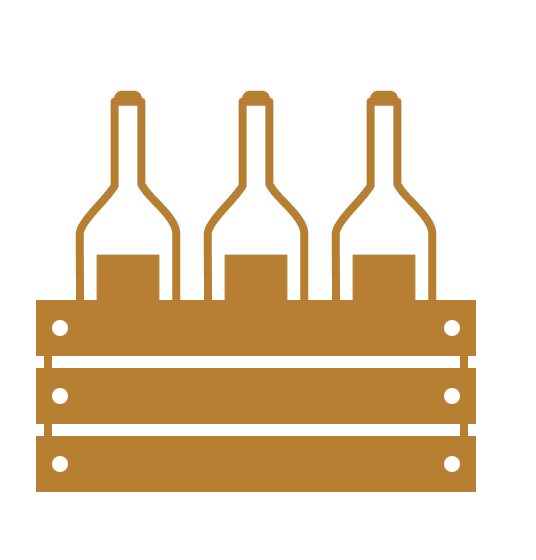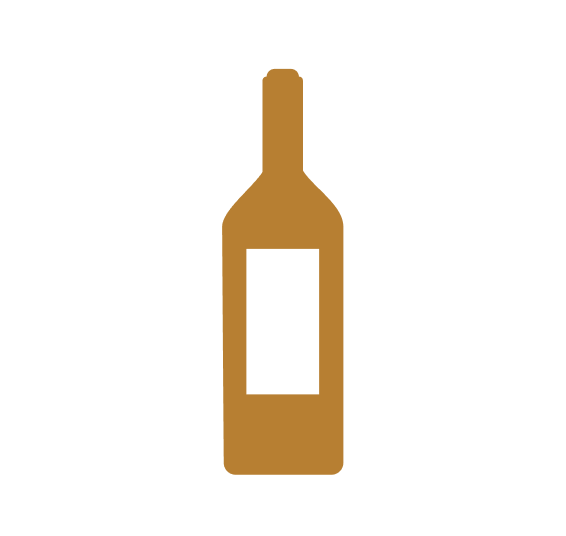Discover our collector's guide, designed to help you assess the quality of rare and iconic wines. Thanks to this guide, you'll gain a better understanding of the criteria that make an exceptional wine from Bordeaux, Burgundy, Champagne or the Rhône Valley great. It will accompany you in the discovery of these unique cuvées, exploring key notions such as estate history, terroir, classifications, vintages and the subtleties of tasting. Whether you're an enlightened connoisseur, a passionate collector or simply curious, this guide will provide you with concrete and essential reference points to quickly refine your choices and your appreciation.
At Maison Wineted, our sommeliers and wine experts carefully select the most iconic and confidential estates, true gems of French and international wine heritage. Thanks to their expertise, you'll understand what distinguishes a rare wine from an iconic one, how to value it, and why certain flasks endure the decades by increasing in value.
For any questions or to benefit from personalized advice on buying or preserving great wines, please don't hesitate to contact our team at the following address : contact@mwineted.com.
FAQ Collector's Guide
How do you assess the quality of a rare, iconic wine?
The great wines combine several quality factors such as history, an exceptional terroir, winemaking finely adapted to the vintage and the cultivated grape varieties, and expertise often passed down from generation to generation, alongside state-of-the-art technical equipment.
Their organoleptic complexity and international renown make them essential references for wine enthusiasts, connoisseurs, and collectors.
At Maison Wineted, our team of sommeliers and wine experts has carefully selected the rarest and most iconic estates from French and international wine regions. They represent the top 1% of the most prestigious wines in the world.
Are Bordeaux wines classified according to their quality?
The wines of Bordeaux benefit from a historical and unique classification system in the wine world, the 1855 classification. This classification was created at the request of Napoleon III for the Universal Exposition, based on the reputation of the estates at the time as well as the sale prices of the wines from the estate.
Since then, other classifications in Bordeaux have emerged, such as that of Saint-Emilion a century later and the wines of Graves in 1953. These classifications are based on various qualitative criteria, including reputation and market price.
The classifications help guide wine enthusiasts and collectors in their purchases. Historically classified Châteaux are thus considered a safe bet with years, even centuries, of expertise.
However, these classifications are not exhaustive and are not updated. The 1855 classification has seen only one update since its creation: Château Mouton Rothschild was recognized as a Premier Grand Cru Classé in 1973 by Minister of Agriculture Jacques Chirac. Therefore, it is important to form your own opinion through oenological visits, tastings, masterclasses, or by reading articles about the vineyards. Many estates just as prestigious as those in the 1855 classification have not been classified, such as Pétrus, La Conseillante, or Evangile.
To learn more about Bordeaux wines, visit our Bordeaux page.
Is an older vintage always better?
This is not necessarily the case, and it depends on individual preferences. Every person has a different palate, and sensory perceptions can vary.
Older vintages are wines with a more polished organoleptic profile over time, meaning that as the years pass, wines develop a different aromatic bouquet, their color evolves, and the tannins become increasingly soft.
Some Bordeaux châteaux, such as Yquem, Pavie, or Cos d'Estournel, are characterized by their impressive aging potential, which is part of their style.
Furthermore, some young vintages rival older ones in quality. Bordeaux is a wine region known for its yearly weather variations, so each vintage has a different expression. To learn more about the latest Bordeaux vintage, you can visit our page dedicated to the Primeurs.
How do I store my wines?
You can visit our accessories page, which explains how to create the ideal conditions to ensure the long-term preservation of your precious bottles.






